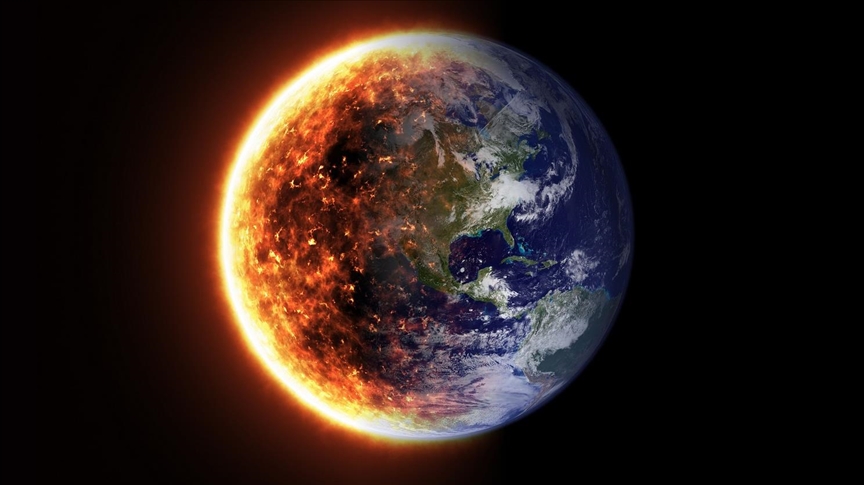‘We must put an end to all kinds of waste,’ says Turkish scientist
Referring to increasing trends of extreme weather events, especially high temperatures, Turkish scientists warned the world may find itself at a point of no return if humanity does not learn necessary lessons.
Speaking to Anadolu Agency on the latest sobering report about rising temperature trends by Copernicus Climate Change Service, which announced that “November 2020 was the warmest November on record,” Huseyin Toros, an expert in atmospheric science and air quality at Istanbul Technical University, said: “Humanity is shooting itself in the foot.”
He voiced concern over people’s failure to take necessary precautions in the face of ongoing threats of extreme weather events such as high temperatures and sea-level rise that are caused by climate change and global warming.
“The fact that the first 10 months of 2020 recorded, at a global scale, temperatures of about 1.2 degrees Celsius [34.6 degrees Fahrenheit] above the average of 1850-1900, and the temperatures in northern Asia, especially in the Siberian Arctic region, were seen to be 5 C [41 F] above the average, is making scientists to get worried about the safety and sustainability of the ecological system,” Toros said.
Globally, November 2020 was the warmest November on record, with the global average 0.1 C warmer than the previous warmest November in 2016 and in 2019, Copernicus Climate Change Service, Europe’s climate body, announced on Monday.
Mentioning the “vicious circle” of climate change, environmental disasters and food security, he said that negative effects of climate change threaten the food security of the world’s poorest and most vulnerable as almost 690 million people or 8.9% of the global population, were undernourished in 2019, according to the UN Food and Agriculture Organization (FAO).
‘Put end to wasting’
Highlighting the strong relationship between rising temperatures, climate change and consumerism, especially fossil fuel use, he called on putting an end to all kinds of waste.
“Global warming, caused by the pollutants released into the air as a result of the use of fossil fuels directly or indirectly for industry, traffic and heating, global climate change negatively affects humanity socio-economically,” Toros warned.
He went on saying that wasting also affects public health as scientific studies show that air pollution causes deaths by triggering respiratory tract, lung cancer and cardiovascular diseases.
“Air pollution is an invisible, sneaky murderer that kills slowly,” Toros noted, referring to the WHO’s findings that air pollution kills an estimated seven million people worldwide every year.
He mentioned that the world should invest more in renewable energy to reduce health care costs and increase the comfort of life.
“We must increase global awareness and sensitivity activities in order to use resources efficiently and economically. We must put an end to all kinds of waste.”
He concluded that developed countries should invest more in water, air and food on a global scale for the sustainability and security of the world.
Article Credit: aa.com
